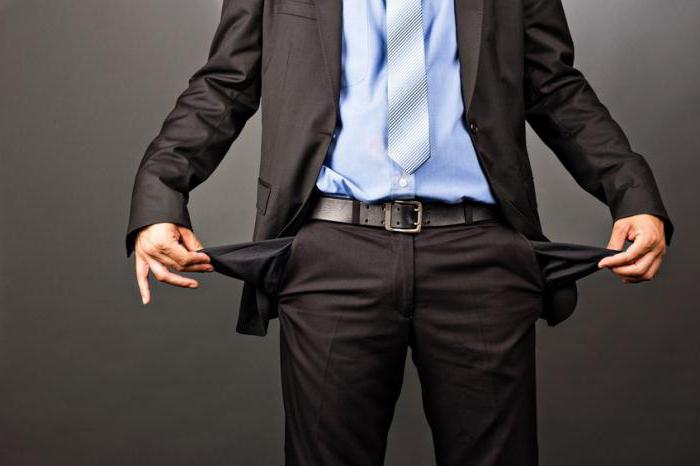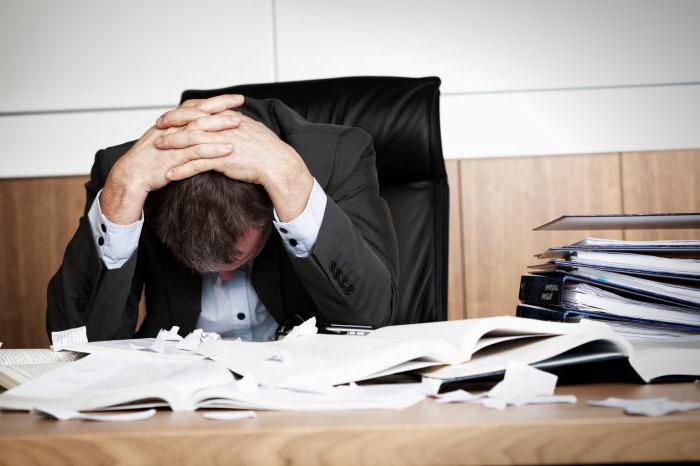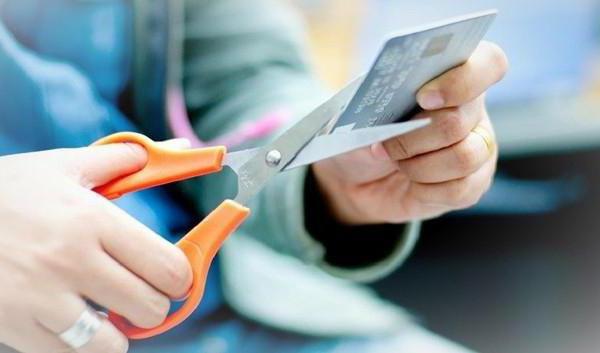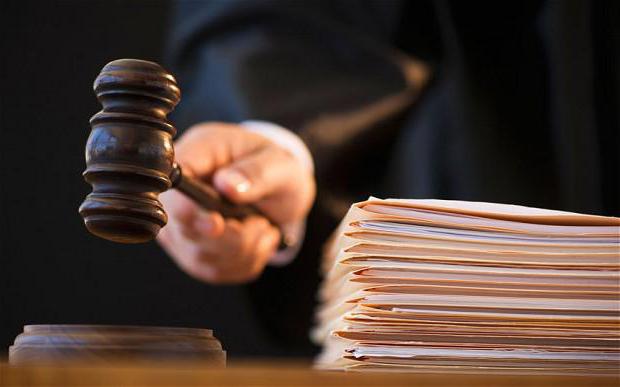On January 1, 2017, amendments to the Law on the Bankruptcy of Individuals of 2002 entered into force in Russia. The regulatory legal act has a rather complicated fate - they tried to adopt it for more than 10 years, but, according to many experts, it - still inferior and "raw." However, the significantly worsened economic situation in the country, the growth of debts among the population and the hype around the “currency” mortgages against the backdrop of the collapse of the ruble hastened the legislator. However, even with the entry into force of new amendments, which were supposed to improve the situation, it is not so easy to become bankrupt.

We will talk about what threatens the bankruptcy of individuals to ordinary citizens in the article. This question worries many people who are held hostage by their loans and debts, and rightly so. Indeed, sometimes for an individual the consequences of bankruptcy proceedings are such that, in principle, the expediency of its implementation is lost.
In practice, one often encounters a situation where a person took several loans, initially paid them successfully on time, but then for some reason loses this opportunity. Bankruptcy should be tried to avoid and try to correct the situation in another way. For example, a driver broke his leg and due to an injury for some time can not do his job, thereby losing a stable income. However, after a short period of time, everything will return to normal. In this situation, you can try to negotiate with creditors.
If the situation is really difficult, and debts continue to grow, then it makes sense to think about the bankruptcy procedure. But to begin with, one should weigh the pros and cons so that its results do not become an unpleasant surprise.
What threatens the bankruptcy of individuals in all respects, we consider further. The consequences can be divided into two groups: positive and negative. Let's start, as expected, with the good.
Getting rid of debt

The debtor gets rid of heavy debt obligations - this is the most important and first positive moment of the bankruptcy procedure. After the execution of the order of the Arbitration Court for the payment of debts, they are written off. In other words, the debtor fulfilled the payment schedule appointed by the court, sold the property (or part of it) with the help of a financial manager and partially covered its debts. The remaining cash obligations in the absence of funds will be debited.
Disposal of claims of creditors
Bankruptcy of the debtor (individual) allows him to finally get rid of the claims of creditors. For someone who owes a large sum of money, and even not to one, but to several people or organizations at once, life can turn into hell. Delay in payment forces lenders to sometimes go in the most controversial ways from the point of view of ethics and morality - to turn to unscrupulous collection agencies that do their work by means of threats, and sometimes physical impact, by endless calls and letters.
The situation will change if the bankruptcy is recognized as valid. From now on, all claims from creditors will come only through the court.
Settlement Payments

The positive consequences of the bankruptcy of an individual include the schedule of payments to creditors established by the court. It is not accepted at random, but only taking into account the circumstances of the case and the financial situation of the debtor.If the latter will fulfill it in good faith, then the creditors will no longer have any claims against him.
Do not forget, however, that changing the schedule may result in an increase in the amount of total monthly payments. But the debtor has the opportunity to reduce them as a whole and, as they say, "stretch" in time.
Loan fines are no longer charged
Clients of law firms and attorneys involved in formalizing bankruptcy proceedings often ask whether this procedure is beneficial. If you talk from the point of view of charging penalties for existing loans, then, of course, yes.
As a rule, debtors do not have time to look around, as penalties for debts turn into a very impressive amount. This increases overall debt and puts the borrower in an even more difficult position. Bankruptcy procedure involves a complete stop of penalties. Moreover, it does not matter how long the procedure will continue in the Arbitration Court.
No consequences for relatives

One of the most exciting questions is what threatens the spouse with the bankruptcy of an individual, or of relatives in general. Answer: it will not affect them in any way. Without a doubt, this is a big plus. The launched bankruptcy procedure does not affect people close to the debtor, and the existing unfulfilled monetary obligations never are transferred to them.
So, we have listed the positive points. However, any process has a downside, less personal. It is good if it will be in balance with the positive aspects, but it also happens that the cons often outweigh the pros. If we are talking about the procedure for filing bankruptcy of an individual, it is important to understand that a lot depends on the specific situation - it is unacceptable to measure all cases with one ruler. Significance is the size of the debt, the presence or absence of property, etc.
Let's talk about what threatens the bankruptcy of individuals from a negative point of view.
Sale of property held by the debtor

Sale of property of the debtor is one of the most serious consequences of bankruptcy. Implementation will concern absolutely everything except the most necessary things. Such measures may seem cruel to many, but such is domestic legislation. It establishes a ban on the sale of sole debtor housing, but immediately makes a reservation - if it is owned. That is, a mortgage apartment or house will be sold, and the fact that children are registered in them does not matter. In cases where the child has nowhere to live, guardianship authorities are involved.
The fact that the debtor has no property is not a reason for refusing bankruptcy proceedings. It can take place, even if he has nothing to pay at least part of the existing debts.
Cash withdrawal

Another unpleasant consequence that threatens the bankruptcy of individuals in 2017 is the withdrawal of (all or partially) the debtor's cash accumulations, which are stored in the form of deposits or in bank accounts. All of them in the right amount will go to pay existing debts. For many, such a measure may seem strange. Indeed, if a person falls into a debt hole and cannot get out of it independently, it is quite logical that there can be no talk of any accumulations in his accounts.
In conjunction with the last two unpleasant consequences that may occur as a result of bankruptcy, there is also control over transactions, which will be carried out by the financial manager of the debtor. It can not only impose a ban on their commission, but also recognize some operations performed in the past (for a period of up to three years) as invalid. This procedure is aimed at cutting off illegal actions.
Bans against the debtor
Arguing on the topic of what threatens the bankruptcy of individuals to the debtor, one cannot but mention some prohibitions that are imposed on him after the end of the procedure.
Firstly, over the next three years he is deprived of the right to manage companies. The legislator, apparently, explains this measure by the inability of the debtor to sensibly assess his capabilities and calculate the situation by several steps, as well as competently manage finances.
Secondly, re-conducting bankruptcy proceedings is prohibited for five years, even if there are all circumstances indicating its necessity.
Thirdly, the debtor is obliged to notify creditors of his status. That is, if he decides to take a new loan, it will be necessary to inform the bank that in the past he was declared bankrupt. And so for five years.
Other consequences: pending court decision, restrictions, payment of state duty

Turning to law firms or to lawyers specializing in this matter, not all citizens are fully aware of what the bankruptcy procedure is actually facing an individual. The consequences listed below can hardly be called secondary, but they are not as significant as those indicated above.
The process is not the fastest. A trial in court and waiting for its decision can take months, and this is due to the recent heavy workload of structures.
The debtor receives a restriction on travel outside the Russian Federation. It is valid during the consideration of the case in court, but should not exceed six months in time.
The debtor must pay the state fee for filing documents, even in cases where he has absolutely no funds. The amount for many may be considerable - six thousand rubles. In addition, payment for the work of the financial manager is provided. True, there is a slight relief from the legislation. A debtor in a very difficult financial situation can apply for a deferred payment.